Related Research Articles
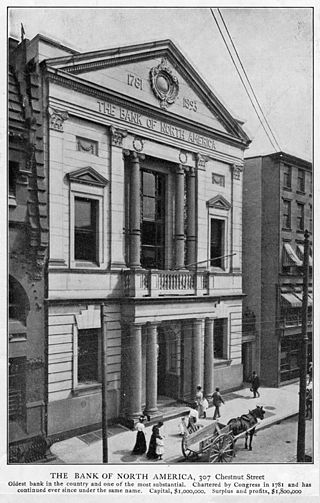
The Bank of North America was the first chartered bank in the United States, and served as the country's first de facto central bank. It was chartered by the Congress of the Confederation on May 26, 1781, and opened in Philadelphia on January 7, 1782.

Robert Morris Jr. was an English-born American merchant, investor and politician who was one of the Founding Fathers of the United States. He served as a member of the Pennsylvania legislature, the Second Continental Congress, and the United States Senate, and was one of only two people who signed the Declaration of Independence, the Articles of Confederation, and the United States Constitution. From 1781 to 1784, he served as the Superintendent of Finance of the United States, becoming known as the "Financier of the Revolution." Along with Alexander Hamilton and Albert Gallatin, he is widely regarded as one of the founders of the financial system of the United States.
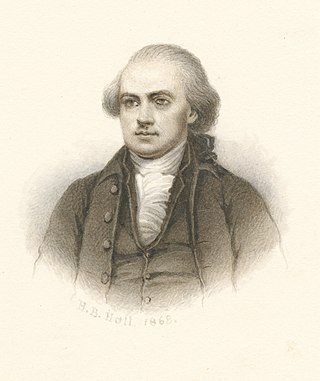
William Ellery was a Founding Father of the United States, one of the 56 signers of the United States Declaration of Independence, and a signer of the Articles of Confederation as a representative of Rhode Island.
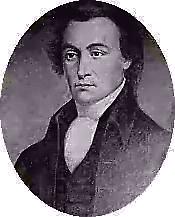
Matthew Thornton was an Irish-born Founding Father of the United States who signed the United States Declaration of Independence as a representative of New Hampshire.
John Armstrong was an American civil engineer and soldier who served as a brigadier general in the Continental Army and as a major general in the Pennsylvania Militia during the Revolutionary War. He was also a delegate to the Continental Congress for Pennsylvania. Armstrong County, Pennsylvania is named in his honor.

The Founding Fathers of the United States, often simply referred to as the Founding Fathers or the Founders, were a group of late-18th-century American revolutionary leaders who united the Thirteen Colonies, oversaw the War of Independence from Great Britain, established the United States of America, and crafted a framework of government for the new nation.

The parish of Trinity Church has three separate burial grounds associated with it in the New York City borough of Manhattan. The first, Trinity Churchyard, is located in Lower Manhattan at 74 Trinity Place, near Wall Street and Broadway. Alexander Hamilton and his wife Elizabeth Schuyler Hamilton, Albert Gallatin, and Robert Fulton are buried in the downtown Trinity Churchyard.

Haym Salomon was a Polish-born American merchant best known for his actions during the American Revolution, where he was the prime financier to the Continental Congress. Born in Leszno, Polish–Lithuanian Commonwealth, Salomon studied finance in Western Europe before emigrating to New York City in 1775. After the American Revolutionary War broke out in the same year, Salomon supported the Patriots by providing financial services while working alongside Robert Morris, the Superintendent of Finance of the United States.

Matthew Lyon was an Irish-born American printer, farmer, soldier and politician, who served as a United States representative from both Vermont and Kentucky.
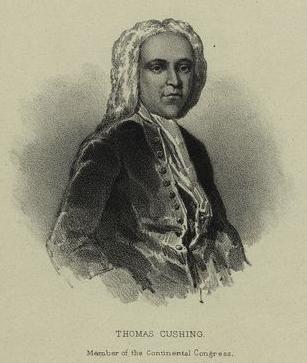
Thomas Cushing III was an American lawyer, merchant, and statesman from Boston, Massachusetts. Active in Boston politics, he represented the city in the provincial assembly from 1761 to its dissolution in 1774, serving as the lower house's speaker for most of those years. Because of his role as speaker, his signature was affixed to many documents protesting British policies, leading officials in London to consider him a dangerous radical. He engaged in extended communications with Benjamin Franklin who at times lobbied on behalf of the legislature's interests in London, seeking ways to reduce the rising tensions of the American Revolution.
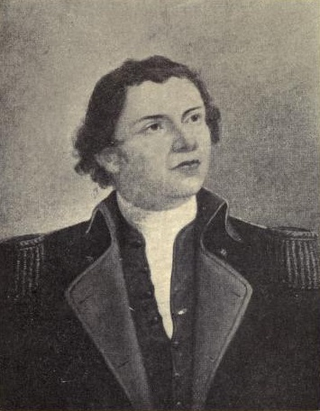
Hugh Mercer was a Scottish brigadier general in the Continental Army during the American Revolutionary War. He fought in the New York and New Jersey campaign and was mortally wounded at the Battle of Princeton.

Captain Abraham Flowers Lincoln was the paternal grandfather and namesake of the 16th U.S. president, Abraham Lincoln. Lincoln was a military captain during the American Revolution, and a pioneer settler of Kentucky. Some historical sources attest his last name as Linkhorn, although neither Abraham nor his children ever signed themselves as such.
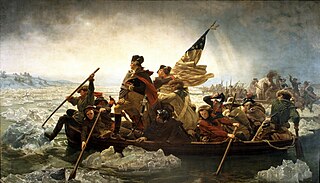
Pennsylvania was the site of many key events associated with the American Revolution and American Revolutionary War. The city of Philadelphia, then capital of the Thirteen Colonies and the largest city in the colonies, was a gathering place for the Founding Fathers who discussed, debated, developed, and ultimately implemented many of the acts, including signing the Declaration of Independence, that inspired and launched the revolution and the quest for independence from the British Empire.

Richard Brandon Morris was an American historian best known for his pioneering work in colonial American legal history and the early history of American labor. In later years, he shifted his research interests to the constitutional, diplomatic, and political history of the American Revolution and the making of the United States Constitution.
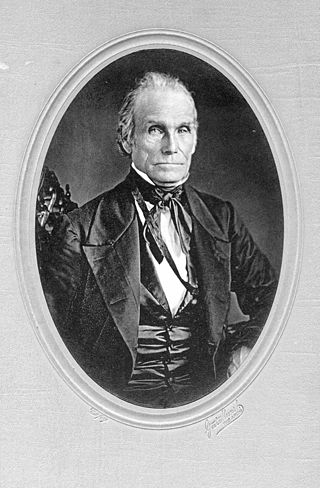
James Harper was an Irish-American politician who served as a National Republican member of the U.S. House of Representatives for Pennsylvania's 2nd congressional district from 1833 to 1837.

Superintendent of Finance of the United States was the head of Department of Finance, which is an executive office during the Confederation period with power similar to a finance ministry. The only person to hold the office was Robert Morris, who served from 1781 to 1784, with the assistance of Gouverneur Morris.
The Bank of Pennsylvania or the Pennsylvania Bank can refer to two institutions: one that existed during the American Revolutionary War, and another chartered by the state in 1793.
The Columbian Institute for the Promotion of Arts and Sciences (1816–1838) was a literary and science institution in Washington, D.C., founded by Dr. Edward Cutbush (1772–1843), a naval surgeon. Thomas Law had earlier suggested of such a society "at the seat of government." It was the first "learned society" established in Washington and was organized on June 28, 1816, sixteen years after the city was occupied, and less than two years after the invasion by the British troops. The second article of its constitution states: "The Institute shall consist of mathematical, physical, moral and political sciences, general literature and fine arts."
Dogs played various roles during the time of the American Revolutionary War. In addition to formal uses like their role in hunting, dogs often accompanied their owners while they were fighting and provided comfort for their owners and those with them in camps. During this time, dogs were being newly studied in science and depicted in art.
References
- 1 2 3 The Register of the Kentucky Historical Society. Kentucky Historical Society. 1914.
- ↑ Harris, Joseph Smith (1 January 1903). Record of the Harris family descended from John Harris, born in 1680 in Wiltshire, England. Dalcassian Publishing Company.
- ↑ Haltigan, James (1908). The Irish in the American Revolution: And Their Early Influence in the Colonies. Washington, DC: Patrick J. Haltigan. p. 192.
- ↑ "Founders Online: From John Adams to James Lovell, 24 June 1780". founders.archives.gov. Retrieved 7 June 2022.
- ↑ "Founders Online: To George Washington from John Armstrong, Sr., 15 October 1779". founders.archives.gov. Retrieved 16 June 2022.
- 1 2 Davis, William Watts Hart (1905). History of Bucks County, Pennsylvania: From the Discovery of the Delaware to the Present Time. Lewis Publishing Company. p. 209.
- ↑ "Hugh Shiell papers, 1780-1785". Kentucky Historical Society on WorldCat. Retrieved 13 June 2022.
- ↑ "APS Member History". search.amphilsoc.org. Retrieved 26 May 2021.
- ↑ Crowgey, Henry G. (6 April 2013). Kentucky Bourbon: The Early Years of Whiskeymaking. University Press of Kentucky. pp. 28, 38. ISBN 978-0-8131-4416-0.
- ↑ "American Revolution Memorial, a War Memorial". www.hmdb.org. Retrieved 6 July 2022.